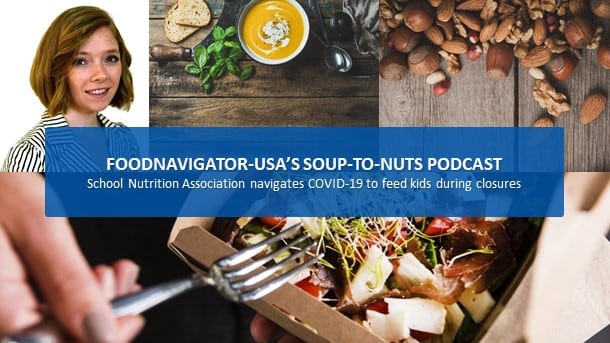According to the lead author of a Health Impact Assessment conducted by the Robert Wood Johnson Foundation’s Healthy Eating Research program at Duke University, the US Department of Agriculture’s proposed rule Simplifying Meal Service and Monitoring Requirements in the School Lunch and School Breakfast Programs published in January would “put children’s health and education at risk.”
Megan Lott, who is also the deputy director of the Healthy Eating Research, added that “nutritious school meals can help put children on a path to lifelong health and well-being,” but the HIA revealed that the USDA’s proposed changes to the school nutrition standards “fall short” of the Dietary Guidelines for Americans and undercut the health and academic improvements associated with updated nutrition standards laid out in the Healthy, Hunger-Free Kids Act in December 2010.
The Healthy Hunger-Free Kids Act required schools to phase in additional servings of fruit, whole grains and a broader range of vegetables, while also reducing saturated fat, sodium and calories in meals based on students’ ages and grade-groups. While many school districts – and food manufacturers that serve them – struggled with the some of changes initially, most were able to reach calorie and nutrient standards in the first phases.
Ongoing struggles to meet later phases of changes and push back from school nutrition professionals and families who said that children did not like and were not eating the food that met the higher standards helped influence the introduction of a proposed rule in January. They argue it would give schools “wiggle room” to offer meals that were both more nutritious than prior to 2010 but also palatable.
Under the proposal, schools could serve as little as a half cup of fruit at breakfast for meals served outside the cafeteria and would no longer be required to serve grains at breakfast. The required amount of red and orange vegetables and legumes also would be reduced and the allowable amount of starchy vegetables increased. Finally, the proposal would allow schools to serve any entrée offered through the reimbursable meal program on its own as part of the a la carte program, which some argue creates a loophole for current nutritional standards set on snacks and foods served in schools.
‘Strong evidence’ changes would have negative impact
Responding to USDA’s requests for comments on the proposal, which the agency extended through April 22, the Healthy Eating Research program conducted the Health Impact Assessment to better understand “the full implications” of the proposed changes on students’ health, well-being and academic performance.
The HIA revealed “strong evidence” that the proposed changes “are likely to reduce the total diet quality of students consuming school meals and foods and beverages sold a la carte.” There also was moderate evidence suggesting that nutrition standards and consumption of healthful school meals is associated with positive weight outcomes, such as lower body mass index.
Beyond physical well-being, the research found “moderate evidence” connecting nutrition standards and improved dietary quality with improved academic performance and cognitive function. This could have a profound influence on students’ lives beyond the classroom with strong evidence showing the relationship between education and health over the lifetimes of better educated individuals living longer and having lower risks of chronic diseases, according to the HIA.
A call to action
Based on these findings, the study authors recommend USDA not implement the proposed changes but rather maintain the stronger standards outlined in the Healthy, Hunger-Free Kids Act of 2010.
In addition, it calls on USDA to “support school food authorities in meeting those standards via enhanced training and technical assistance, and invest in school kitchen equipment and infrastructure.”
If USDA goes forward with the proposed changes, the authors ask that the agency closely monitor and evaluate the effects of the changes as well as make that data available to outside researchers.
The research and sentiments by the authors echo many of the concerns already expressed by public health officials and other stakeholders who vehemently oppose the proposed changes. The School Nutrition Association, however, supports the changes saying that they will allow schools to offer students nutritious meals that are palatable, accessible and affordable.




